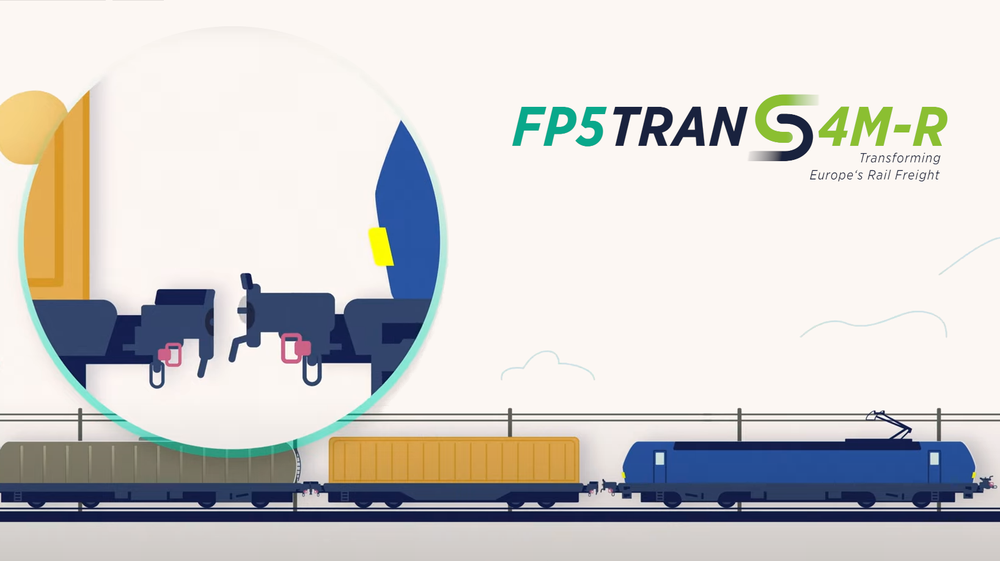TRANS4M-R
In view of the constant growth experienced in the freight transport sector, increasing the efficiency of rail transport is becoming increasingly important. The aim is to establish freight transport by rail as the backbone of low-emission, resilient European logistics chains and thus achieve the goals and visions of the European Commission as part of the European Green Deal.
In this context, the TRANS4M-R project is developing the Digital Automatic Coupling (DAC) as a key element for the optimisation of European rail freight transport. The aim is to automate current manual processes such as coupling and uncoupling railway cars or brake testing using an automatic coupling unit. The DAC enables both an increase in operational efficiency and flexibility through the faster and more efficient formation and separation of cargo trains as well as increased capacity through longer and heavier trains.
Furthermore, the combination of the DAC with coordinated software-defined systems and digital railway services will enable better integration of rail services into multimodal transport chains. This concerns both the planning and operation of rail transport. The seamless, integrated, interoperable, validated and EU-approved solutions which will be developed in this project seek to create a standardised EU framework for freight rail technology with well-defined interfaces for effective system integration and seamless operation across borders, operators and modes of transport.
TRANS4M-R vision and goals

Flagship Project 5 - Transforming Europe‘s Rail Freight
Your consent to the storage of data ('cookies') is required for the playback of this video on Youtube.com. You can view and change your current data storage settings at any time under privacy.
Europe's Rail Joint Undertaking
TRANS4M-R brings together 77 partners from across the rail sector, including end users, industry partners, railway undertakings, network and infrastructure managers, railcar leasing companies, small and medium-sized enterprises and academia. The project plays an important role in fulfilling the rail freight sector's commitment to increasing the modal split to 50 percent by 2030, removing the link between economic growth and transport-related pollution in Europe and contributing to the quality of life of European citizens.
The project consists of the two clusters 'Full digital goods train operations' (FDFTO) and 'Seamless freight'. FDFTO focuses on technological innovations for trains such as the aforementioned DAC along with its harmonised interfaces. The development of electrical and data connections between the carriages will enable intelligent applications for cargo trains. Today's manual processes prior to train departure, such as registering the train composition and carrying out brake tests, are automated by FDFTO train functions. The train journey itself can also be improved, for example through the continuous monitoring of train integrity or distributed traction systems.
Seamless freight transport is about the improved integration of rail services into multimodal transport chains, both in the planning and operation of railway transport. End-to-end planning is being enhanced by new functions such as intermodal and dynamic routing information systems for capacity and demand management. Operations benefit from standardised real-time data exchange and AI-based forecasting algorithms. This facilitates direct interaction with new traffic management systems and dynamic scheduling in shunting yards and transhipment terminals.
Funded by



